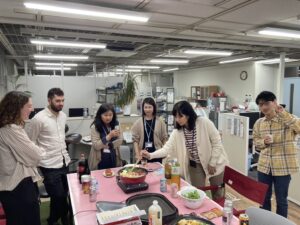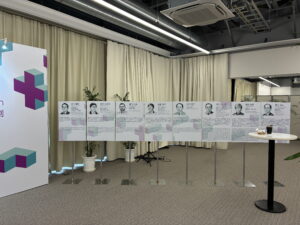Professor Naoki Kondo and Assistant Professor Hiroshi Habu of Kyoto University have co-authored a new book titled “Studying Psychosocial Determinants of Aging: Methodological Contributions,” published by the Spanish academic publisher Editorial Tirant Lo Blanch in collaboration with the ARMAQoL Research Group at the University of Valencia, Spain.
This book compiles the latest methodological insights in aging research, focusing on psychology and social epidemiology. It consists of the following four chapters:
- Data Harmonization in the Study of Healthy Aging
- Cognition Among Older Adults: Contributions to its Measurement and Analysis
- Identification and Role of Social Networks on Aging
- Public Health Notes on the Ontology of Cultural Capital
The chapter “Public Health Notes on the Ontology of Cultural Capital,” co-authored by Assistant Professor Habu and Professor Kondo, explores the conceptual foundations of cultural capital in public health, highlighting its potential applications for future research and interventions.
The book is available in open access, allowing anyone to read it freely online.
Publication Information:
Kondo, N., Martínez Gregorio, S., Habu, H., Torres, Z., Sánchez Niubó, A., Oliver, A., & Fernández, I. (2025). Studying Psychosocial Determinants of Aging: Methodological Contributions. Editorial Tirant Lo Blanch.
ISBN: 978-84-10814-257
Read the full text here
(If direct access is not available, click “ACCEDER A TIRANT OPEN ACCESS” on the page and search for the book title.)

![[News] Reminder: “Creating Cultural Epidemiology” Symposium at SER 2026 [Professor Naoki Kondo and Assistant Professor Hiroshi Habu]](https://socepi.med.kyoto-u.ac.jp/wp-content/uploads/cropped-Labo_logo_175.png)


